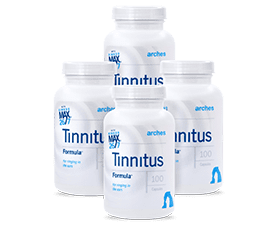By Barry Keate –
Barry Keate, has lived with tinnitus over 40 years and has published 150+ research articles on numerous aspects of tinnitus. He is an expert on the condition and a well-known advocate for those with tinnitus.
Editor’s note (1/5/2021): We recently published in Quiet Times, Coping with COVID Related Hearing Loss and Tinnitus. As we continue to learn more about the COVID virus, we were heartened to see this new study on a way of limiting its infection-rate as we wait for the roll-out of new vaccines.
There is new, stunning research that shows that Melatonin, a dietary supplement used to enhance sleep and anxiety associated with tinnitus, also reduces the incidence of COVID-19 infection and may be therapeutic for those who already have the disease.
Melatonin is a human hormone, produced in the pineal gland, that regulates sleep patterns and induces drowsiness. It also has powerful antioxidant, anti-inflammatory, and immune enhancing features. We have discussed in past articles how supplemental melatonin enhances sleep, reduces anxiety and improves outcomes among people with tinnitus. More on that later.
Melatonin and COVID-19
This new study comes from Cleveland Clinic’s Lerner Research Institute and focused on the repurposing of drugs that the US Food and Drug Administration has already approved for new therapeutic uses, citing both efficacy and low cost. (1)
Using Artificial Intelligence algorithms they measured the similarities between coronavirus proteins and those well associated with 64 other diseases across several categories (cancer, autoimmune, cardiovascular, metabolic, neurological and pulmonary diseases). Closer similarities indicate a higher likelihood of pathological associations between the diseases.
For instance, in severe cases, Respiratory Distress syndrome (RDS) and sepsis have been identified as two main causes of death in COVID-19 patients. Sepsis is a serious infection that causes your immune system to attack your body and is sometimes referred to as a cytokine storm. The proteins associated with these two conditions were highly correlated with multiple coronavirus proteins. That indicates that a drug already approved to treat these respiratory conditions may be useful in treating COVID-19 by acting on those shared biological targets.
The researchers found 34 drugs as potential repurposing candidates including the antibiotic azithromycin and the iron reducer deferoxamine that are already being studied in clinical trials for COVID-19. Melatonin was highest on the list for possible repurposing.
Researchers took that information and combined it with data collected from nearly 27,000 patients in Cleveland Clinic’s COVID-19 registry. After adjusting for age, race, smoking history and various disease comorbidities, melatonin usage was associated with a nearly 30% reduction in the likelihood of a positive COVID-19 test.
Even greater reductions were shown for African-Americans. After applying the same adjustments as before, the reduced likelihood of a positive test increased to 52%! This is an especially promising sign as African-Americans have been hit particularly hard by the virus.
These are powerful numbers and, if they are proven out by further testing, would mean that melatonin may be an important treatment for those who already have COVID-19.
Melatonin’s safety in humans has long been recognized as very high. Short-term use of melatonin is safe, even in those given high doses, and the adverse effects are limited to occasional dizziness, headache, nausea and sleepiness. In clinical trials, doses of 3 mg, 6 mg, and 10 mg of melatonin showed satisfactory safety when compared to placebo. Even when melatonin was given at a dose of 1 gram/day for a month, there were no adverse reports of the treatment.
Melatonin and Tinnitus
Melatonin has also shown great promise for the treatment of tinnitus. It is especially helpful for those whose tinnitus results in insomnia and difficulty staying asleep. One study conducted at the Ear Research Foundation in Sarasota, FL found in those who reported difficulty sleeping due to their tinnitus, almost 47% reported an overall improvement in their tinnitus after taking supplemental melatonin. They concluded, “Melatonin has been shown to be useful in the treatment of subjective tinnitus. Patients with high THI scores (Tinnitus Handicap Inventory) and/or difficulty sleeping are most likely to benefit from treatment with melatonin.”
Melatonin also plays a strong role in controlling weight gain and blood pressure, improving glucose (sugar) metabolism and reducing Type 2 Diabetes.
If you have tinnitus and are worried about contracting COVID-19, consider using supplemental melatonin for both conditions. You should at least get a better night’s rest. I take 20 mg every evening and have been doing so for many years. This may be too high a dose for some people. I recommend you start at a lower dose and gradually work up until you find your optimum amount.
References:
1 – https://health.clevelandclinic.org/can-melatonin-help-treat-covid-19/
Get Free Shipping!
Order now and get free shipping on either the Tinnitus Starter Kit or Combo Pack. Try the doctor recommended products with clinically proven ingredients for tinnitus. No coupon code required.

